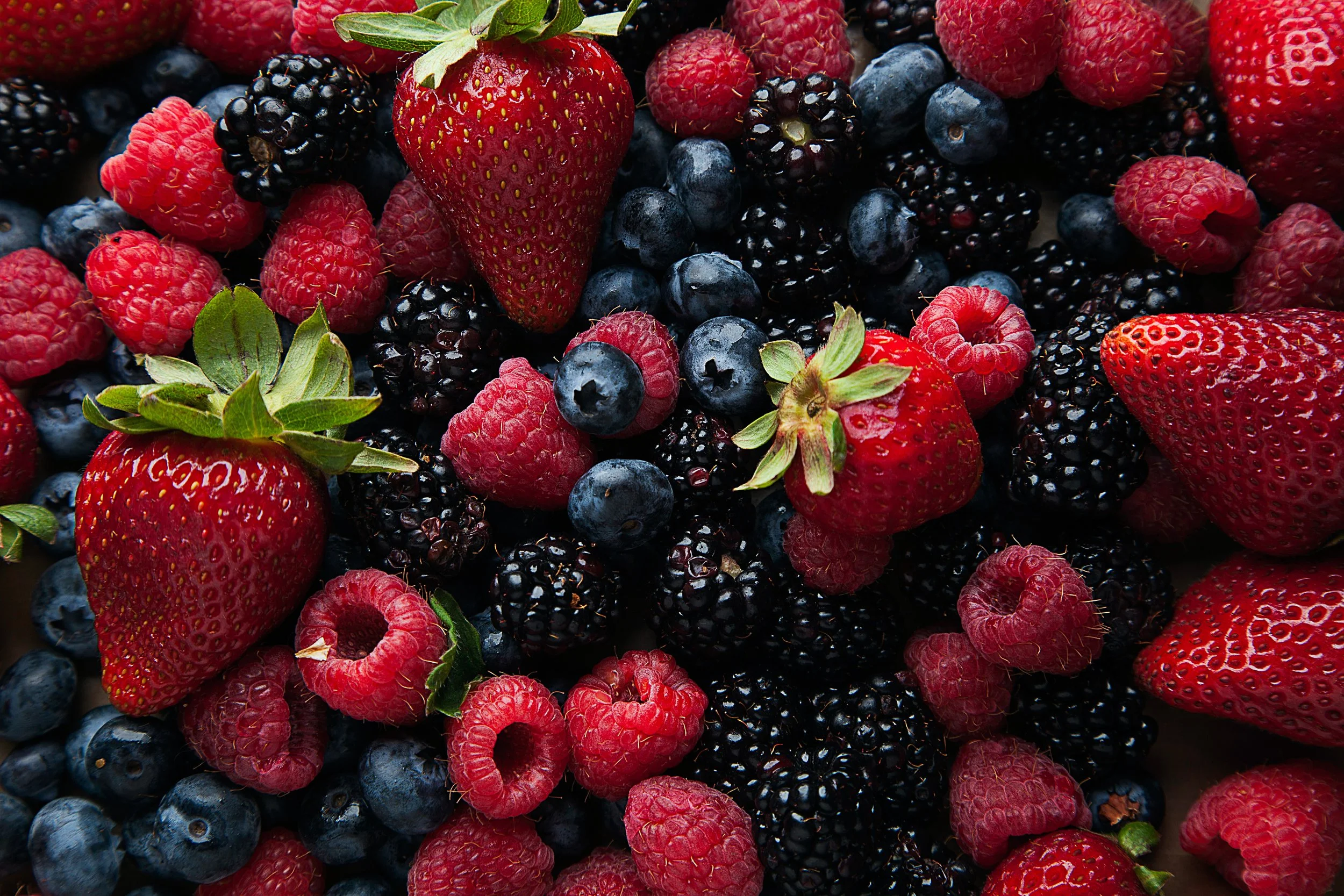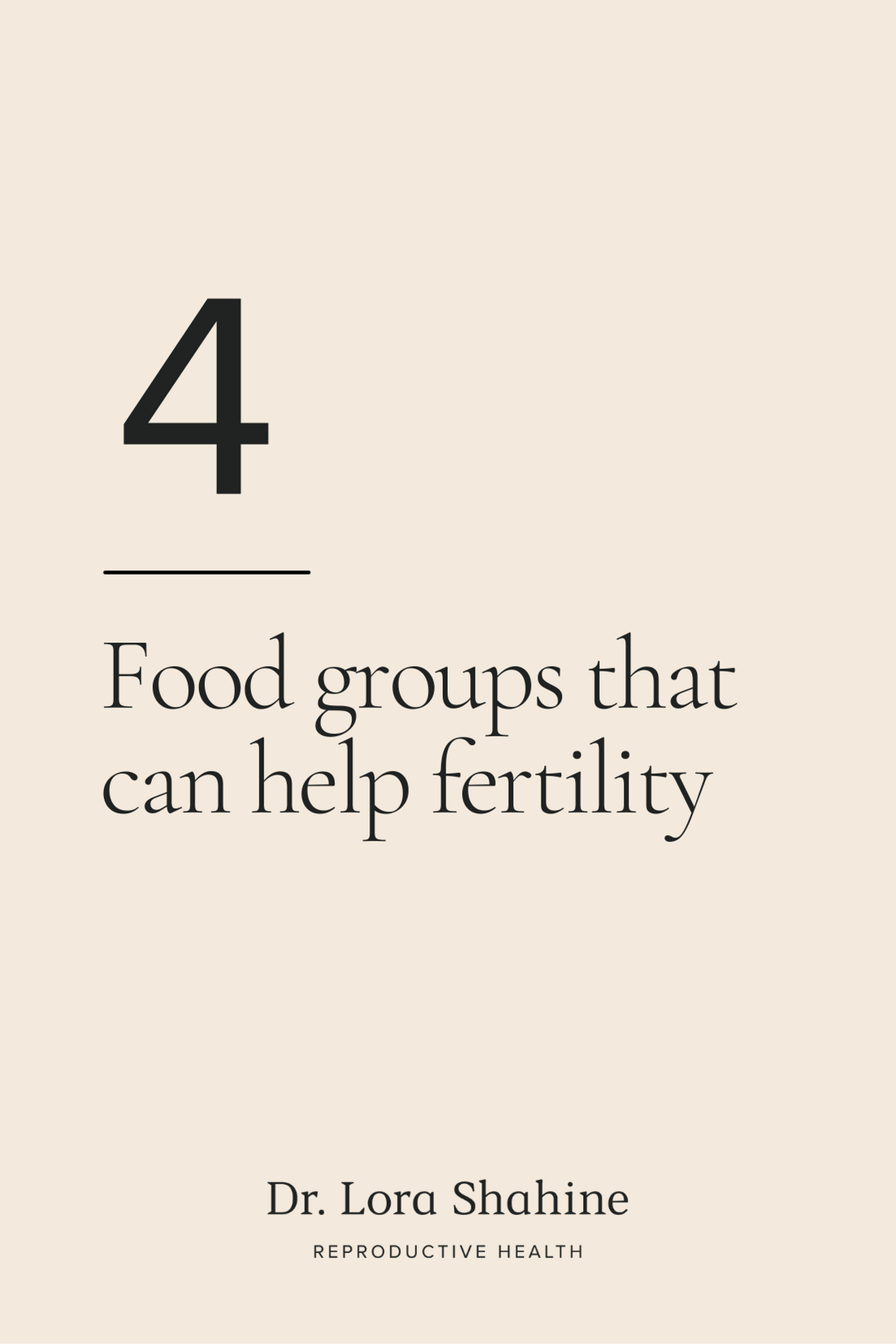Best Foods for Fertility
Answering questions is a big part of my job. As a reproductive endocrinologist, I love answering questions about all things reproductive health.
One of the most common questions I get, from both patients and my online community, is this: “What foods can improve my fertility?”
This blog post will share my recommendations, based on studies, for four key food groups: fruits, grains, dairy, and antioxidant-rich foods. Let’s get started.
Fruits
Multiple studies have shown that fruit can play a role in improving fertility.
One study out of Australia tracked over 5,000 women who were trying to conceive. Their diets were self-reported. Over time, it was determined that women who ate three to four servings of fruit per day experienced a shorter time to conception. Now, of course, there are many different variables that can affect the outcomes of a study, but I think this conclusion is interesting, especially considering that another study showed that higher fruit intake can improve sperm parameters.
Another study that I often reference found that a higher fruit intake, particularly citrus fruit, was associated with lower risk of endometriosis. (We're still learning a lot about endometriosis, but it’s an inflammatory condition that can be associated with decreased fertility.) The study showed that women who consumed at least one serving of fruit per day had a 22% lower risk of endometriosis.
So, given the data, it sounds like fruit is great for fertility, both for people with eggs and sperm. Please be careful and wash your fruit very well before consuming. While organic fruit can have less pesticide exposure, it can still have pesticides. For more information about toxins, be sure to look here.
Whole grains
Several studies have shown that a diet full of whole grains (and less processed) grains can improve fertility. One 2015 study showed an improved male factor fertility from diets rich with whole grains. Another study observed an improved success rate with assisted reproduction (specifically IVF) from diets full of whole grains.
It’s theorized that whole grains can help balance our hormones, which in turn helps with fertility. Fascinatingly, the people observed in this study showed more regular ovulation and lowered excess estrogen levels from diets high in whole grains.
So, choose whole grains when you can.
Dairy
I have had patients who said, “I've been told I have to completely cut out dairy in my diet because it causes inflammation. And I know it's not good for me.”
I believe in balance and moderation with all things in life, and dairy is no exception. Some people might experience more inflammation with dairy, but there are some interesting studies related to dairy and fertility.
This Nurses Health Study concluded that more whole-fat dairy products or whole milk can increase the chances of improved fertility. This study showed that women who consumed at least one serving of high-fat dairy per day were 27% more likely to have regular ovulatory menstrual cycles, which is associated with a higher fertility rate.
Another 2013 study showed that a diet rich in dairy is associated with a lower risk of endometriosis. In fact, the study compared women who had 2 daily dairy servings to 3 or more daily dairy servings; it was seen that women who had 3 or more daily dairy servings experienced an 18% lowered risk of endometriosis to the 2 daily serving group. It’s so interesting.
Nothing is absolute, but there are hypotheses about the correlation between dairy and endometriosis. Dairy can be high in vitamin D, and diets high in vitamin D will have a lower risk of endometriosis.
So, there is evidence that suggests it’s okay to enjoy your dairy in moderation, and it looks like whole-fat dairy is going to be a better option for your fertility.
Antioxidant-rich foods
Antioxidants in food can be a powerful health tool in our cells, including our eggs and sperm. As our cells produce energy, free radicals are also produced as a byproduct. These free radicals can lead to cell damage over time. Antioxidants help free up free radicals, decrease the risk of cellular damage and, according to studies, can improve our overall fertility.
There is a great study observing improved sperm parameters in a diet full of antioxidant-rich fruits and vegetables. Another study showed that diets with high antioxidants can be associated with higher success in fertility treatments.
One quick way to get a power punch of antioxidants: Eat a handful of walnuts.
A 2012 study noted that a handful of walnuts improved sperm parameters and the male factor fertility in 100 men who ordinarily followed a traditional Western diet.
Other ways to get antioxidant-rich foods include green leafy vegetables (like spinach), pumpkin, eggplant, peaches, apples, grapes, nuts (such as walnuts and almonds), and whole grains. Herbs, ginger, garlic, and even tea and coffee can also be sources of antioxidants.
Let’s recap
If you're going to the grocery store and want to buy fertility-friendly foods, think about fruits, whole grains, whole-fat dairy, and sources of antioxidants. For more information about nutrition, take a look at this post about foods that might harm fertility. You might also enjoy my recommendations on exercise and fertility.
I hope this video is helpful for you. If you have additional questions, comment in my YouTube video.



